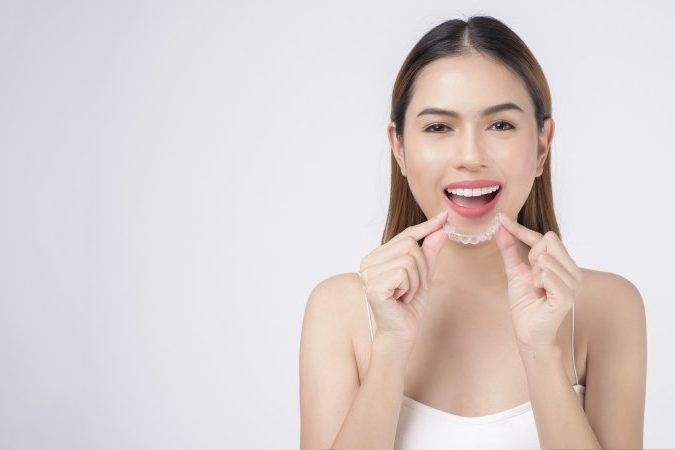
Using clear aligners, Invisalign is a groundbreaking orthodontic procedure that can enhance your smile by straightening your teeth. Invisalign aligners are made of a slim, adaptable plastic that is personalized to fit your teeth without the need for braces. The aligners need to be worn for 20 to 22 hours each day, and they gradually move your teeth into their new positions. If you have a history of teeth grinding, can you still consider Invisalign? Keep reading to find out if this is a suitable choice for achieving a straighter smile.
What Is Bruxism?
Bruxism is a disorder that results in individuals clenching their jaw and grinding their teeth, which can occur both during the day and while sleeping. This condition can lead to various oral health issues and is frequently linked to stress, anxiety, or anger. Furthermore, it can be a side effect of specific medications, such as antidepressants and antipsychotics.
The prevalence of bruxism is highest among children, teenagers, and young adults. Research indicates that this condition affects up to 50% of children, 15% of teenagers, and 8% of middle-aged adults. However, the actual incidence could be greater since many individuals are oblivious to their teeth grinding habits.
Why Is Bruxism a Concern?
Teeth grinding during the night can exert up to 250 pounds of force, making tooth enamel deteriorate over time. As people are less aware of their teeth grinding when they are asleep, the risk of damage while awake is considerably reduced.
Sleep bruxism can result in as many as 100 episodes of clenching each night, with each episode lasting up to one second. Teeth grinding may not happen every night. Generally, sleep bruxism does not occur during REM (rapid eye movement) sleep, but rather earlier in the sleep cycle.
Teeth grinding during the night can lead to jaw and neck discomfort, as well as tension headaches in the morning. If you have unexplained teeth damage, this may be an indication of night bruxism.
Can I Get Invisalign If I’m Dealing with Bruxism?
Invisalign treatment can assist in managing teeth grinding. Misaligned teeth are one of the primary causes of bruxism for some people. Invisalign can help align your teeth, decreasing the amount of stress on your jaw muscles.
When teeth are not correctly aligned, they can irritate your temporomandibular joints (TMJ) and cause grinding, which can result in discomfort, headaches, and other issues. Invisalign treatment can be beneficial as you wear the aligners overnight, which is when most of the damaging grinding occurs. This can serve as a barrier against bruxism.
However, patients with bruxism typically wear down the plastic of their aligners faster than those without it. It is important for your orthodontist to be aware of this during your treatment. It is critical that the aligners provide some degree of protection against bruxism since it eliminates the need for a night guard or other protective devices.
About the Practice
At Weldon Implant and Cosmetic Dentistry of Ocala, Dr. Daniel Weldon and Dr. Elizabeth Estes Weldon provide a broad range of services, including Invisalign to straighten your teeth without needing braces. They can assist you in determining whether this treatment is suitable for you so you can attain the smile you desire. To schedule an appointment with Weldon Implant and Cosmetic Dentistry of Ocala or to learn more about Invisalign, please call (352) 622-3236 or visit their website.

